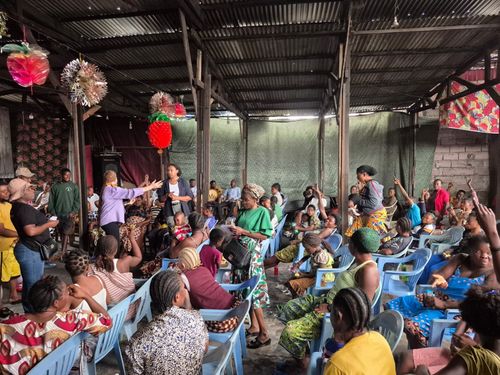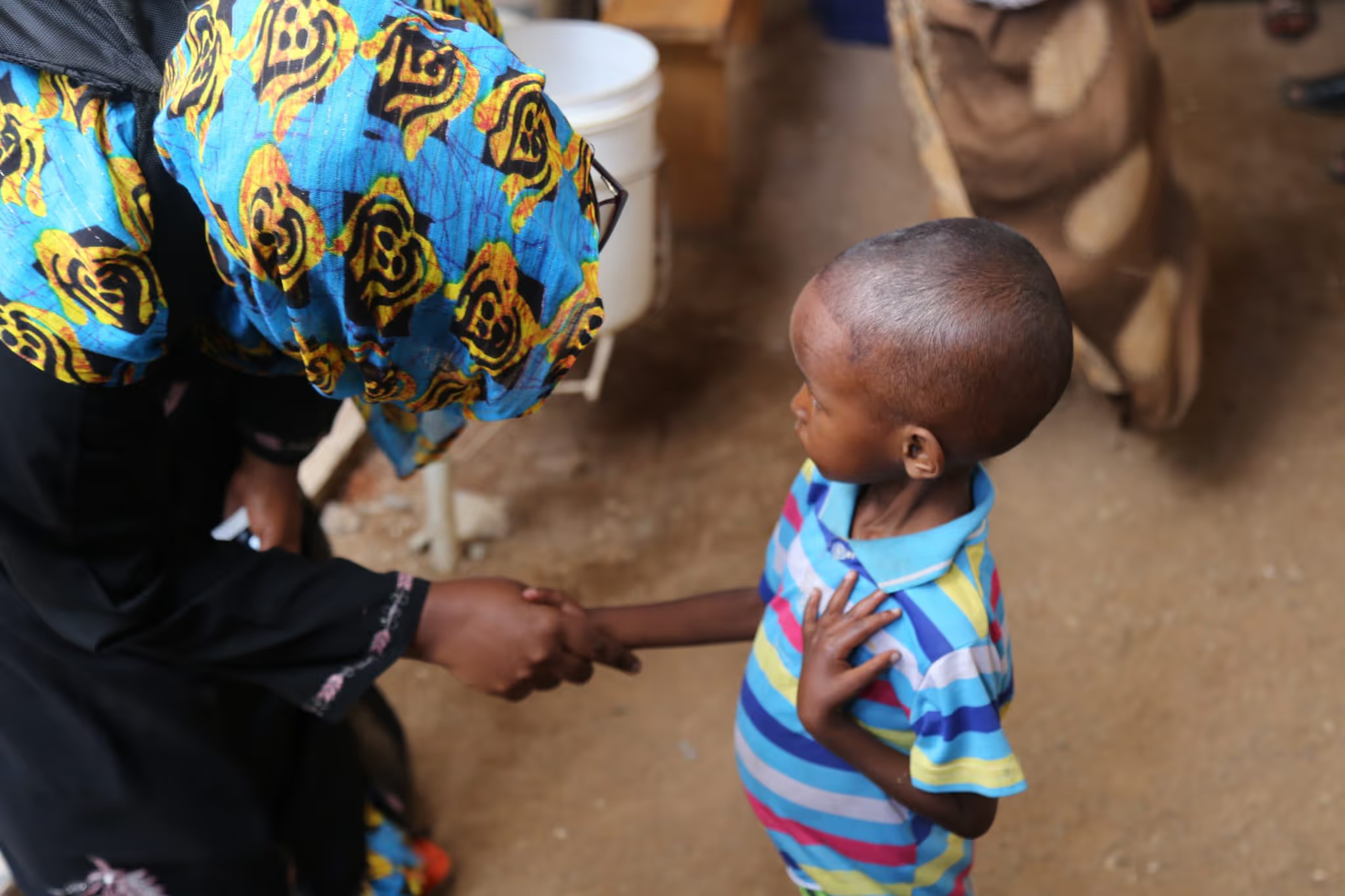Non-Communicable Disease Guidelines and mHealth Records for Refugees in Lebanon
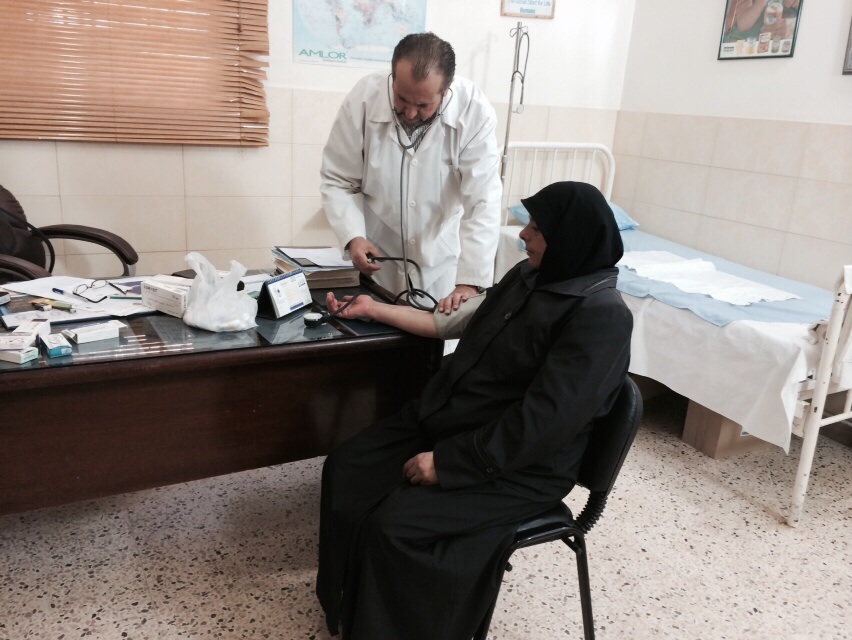
Project overview
To improve the quality of care for patients with hypertension and/or type II diabetes at primary health care centers (PHCs) in Lebanon by coordinating with local and international health specialists.
Project solution
This project offers [specific solution or intervention] to tackle [challenge]. By implementing [strategies, tools, or innovations], the project aims to achieve [desired outcomes]. The approach is designed to [specific actions or methods] to bring about meaningful change in [community, region, or issue area].
Expected outcomes
This project aims to achieve [specific outcomes], such as [measurable results, improvements, or changes]. The expected impact includes [benefits to the target community, advancements in research or innovation, or long-term effects]. By the end of the project, we anticipate [specific changes or milestones] that will contribute to [broader goals or objectives].
Principal Investigator: Shannon Doocy, Johns Hopkins Bloomberg School of Public Health
Purpose
This project aimed to develop, implement and evaluate treatment guidelines and an mHealth intervention to improve treatment of hypertension and type 2 diabetes. The mHealth tool was composed of two elements: an electronic patient medical record and a tablet-based software application that provides decision support to healthcare providers. The study sought to assess the effectiveness of these components in improving patient and provider compliance, quality of care, disease control and health outcomes among patients. The trial was planned to take place in five clinics supported by the International Organisation for Migration (IOM) in Southern Lebanon.
Programmes and Outcomes Achieved
The guidelines for treatment of hypertension and type 2 diabetes were successfully adapted to the emergency context. Working in partnership with MIT, an mHealth app was developed which acted as a patient medical record and a tool to support treatment decisions. Staff in health care facilities were trained on the use of the guidelines and the mHealth app. A study was undertaken to assess the effectiveness of the interventions measuring clinical health outcomes and qualitative feedback from both patients and providers, with comparison of data from baseline to endline (after 6 months use of the guidelines and app).
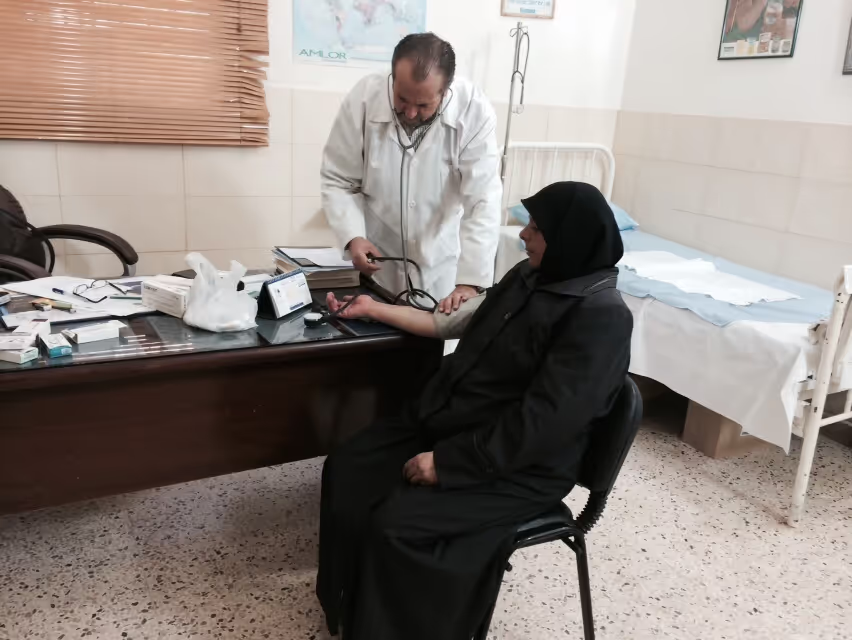
Key findings:
- Clinical measures showed mixed results. Blood pressure and blood sugar levels reduced following implementation of the guidelines. However, changes in clinical measurements and the control of hypertension and type 2 diabetes were not significant in the mHealth phase
- A substantially larger proportion of patients had their health data collected using the app compared to those with only paper records
- The reported quality of patient-provider clinical interactions was improved during the guideline and mHealth phases of treatment, compared to the patient enrolment phase, Satisfaction with the clinic visit improved significantly during implementation of the mHealth application
- Healthcare provider perspectives on how the application changed patient interactions were mixed - some regarding it as time consuming to use, whilst others reported greater patient satisfaction and understanding. Overall, the study team reported it was more challenging than anticipated to secure adoption of the mHealth app amongst health care practitioners in the humanitarian setting.
Key outputs:
- Mobile Patient-Controlled Health Record (mHealth) app
- Two published peer-reviewed articles
- Briefing meeting with Ministry of Public Health in Lebanon
- Dissemination event with UN agencies and NGOs in Lebanon
Next steps:
Further promotion of the mHealth app with IOM, UNHCR and others to increase uptake is planned. The open-source code for the application has been made available for others to adapt and develop. Development and ongoing updating of a user manual, troubleshooting guidelines and other supporting documentation will be required. Translation of application content to other languages, and adoption of the current version to locations with different treatment protocols, is encouraged.
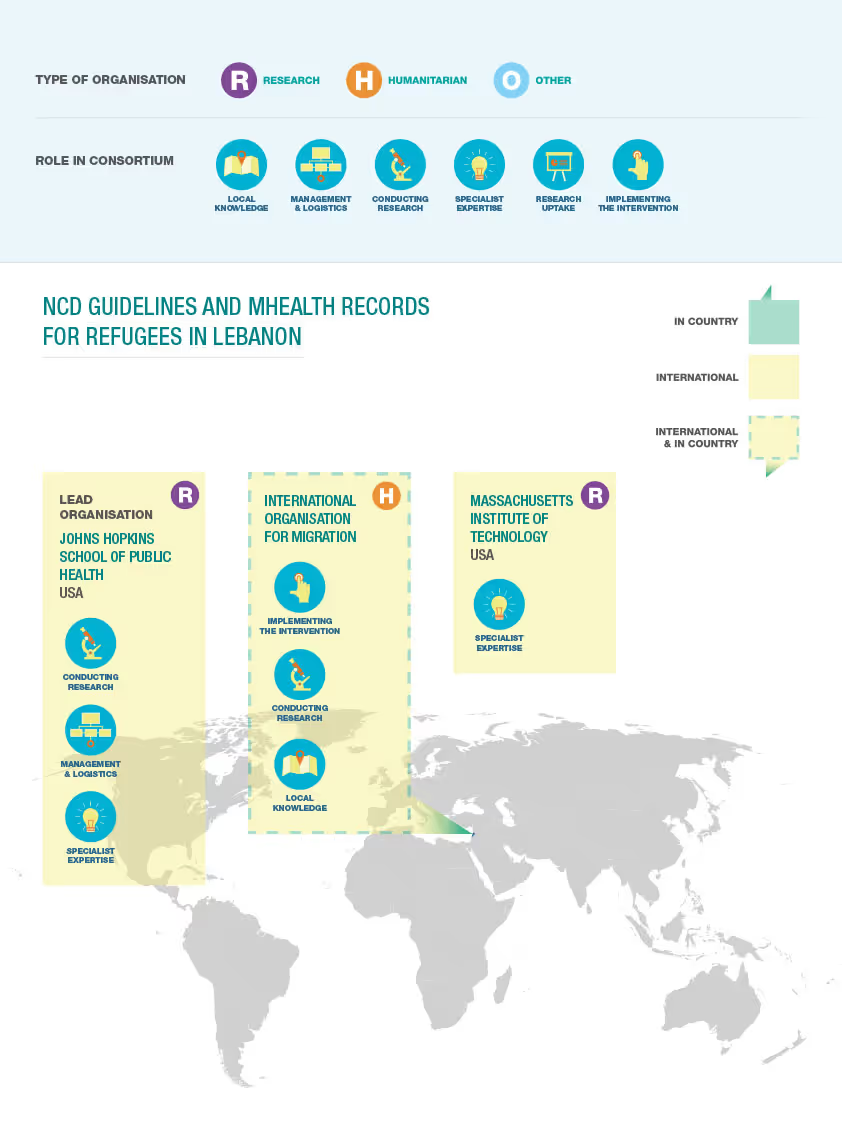
Project delivery & updates
Stay up to date with the latest developments from this project. Here, you will find details on what has been delivered, resources created, and regular updates as the project progresses. Access key documents, reports, and other materials to see how the project is making an impact.
